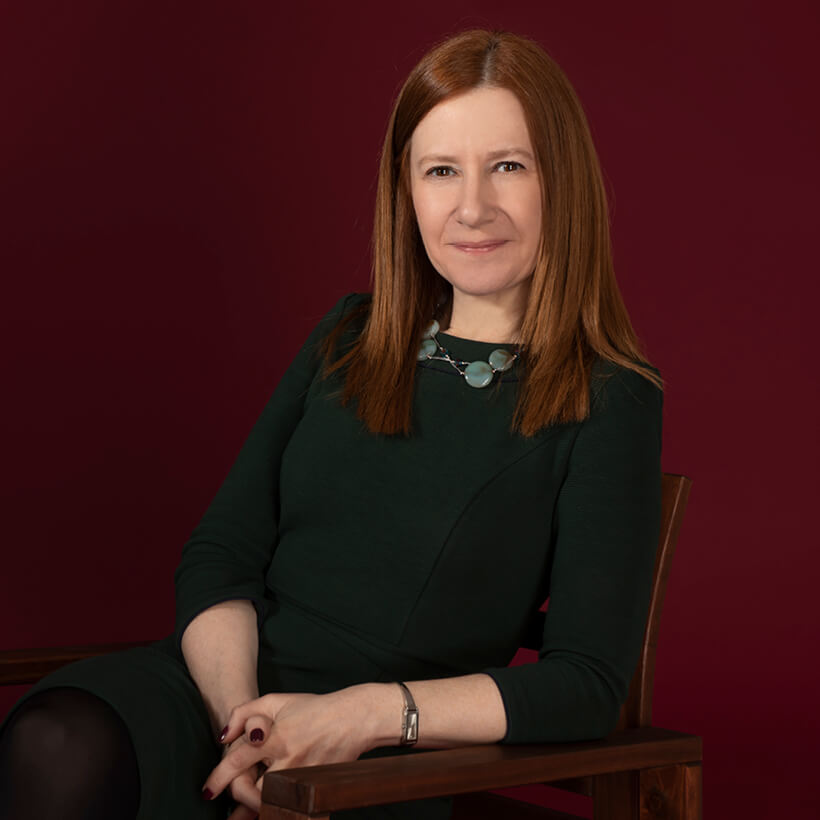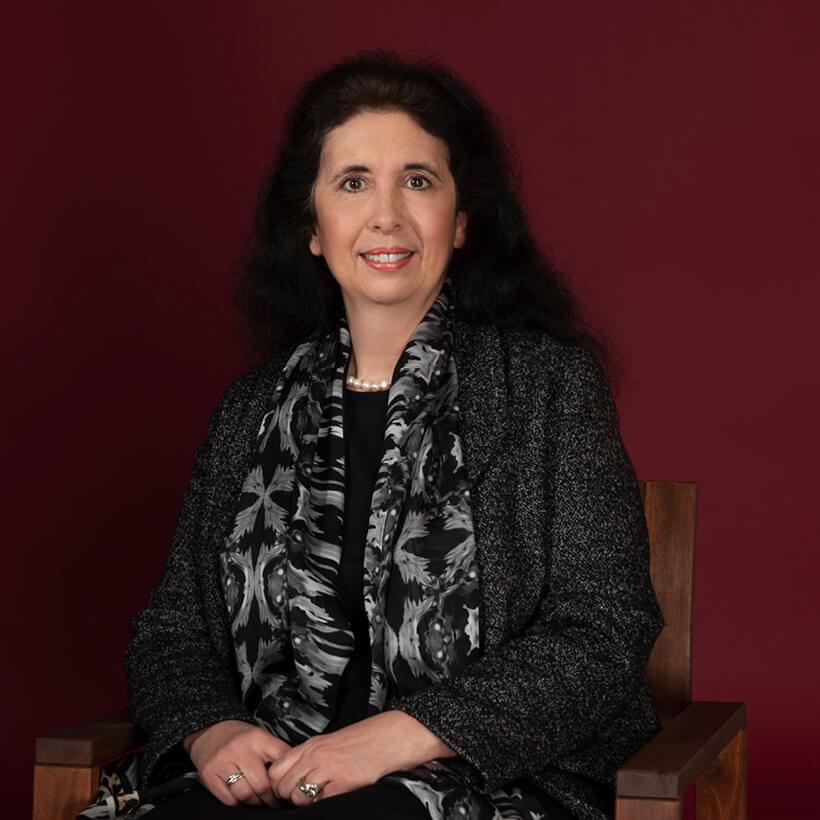- Tanya Roberts
Partner
- Tania Goodman
Partner - Head of Employment
- Janet Armstrong-Fox
Partner - Head of Private Client Real Estate

News
Celebrating 100 years of women in law
Collyer Bristow’s HigHer Committee commemorates 100 years since the first woman was admitted to the Roll of Solicitors in England and Wales.
3 minute read
Published 16 December 2022
This Sunday 18 December marks the centenary since the first woman qualified as a solicitor in England and Wales. On this date in 1922, Carrie Morrison was admitted to the Roll of Solicitors by the Law Society. This, just nine years after the case of Bebb v Law Society reconfirmed that women were not able to enter the profession as they were not qualified as ‘persons’ under the Solicitors Act 1843. It took the passing of the Sex Disqualification (Removal) Act in 1919 to open the legal profession to women, 97 years after the Law Society was established.
Honouring Carrie Morrison as the first female solicitor
Having been told that the law was “too rough and tumble for women”, within three days of being admitted to the roll, Carrie Morrison had her first two clients – both women – and was quoted as saying “I can conceive cases in which (female clients) would first consult one of their sisters”. Although the contemporary press took more note of her complexion and her cats than her legal achievements, Carrie was a fierce feminist who was not afraid to represent sex workers in court and acted as solicitor for the Women and Children’s Protection Society.
She represented the wife in the infamous 1943 case Blackwell v Blackwell, where the court held that money Mrs Blackwell had accrued as dividends by shopping at the Co-operative Society should belong to her husband, despite them having been separated for two years. Carrie’s achievements are all the more remarkable considering the challenges female lawyers faced at this time. A time when a judge could state, “If a wife has a right to the money she can save from her housekeeping allowance, she might let her husband go short of food while she builds up a banking account. She might serve him up corned beef instead of roast beef for dinner.”
Carrie was certainly ahead of her time, a strong advocate for reforming divorce law into a less adversarial process which did not need to rely on identifying one ‘guilty’ party – something which has only come into force this past year with the introduction of the Divorce, Dissolution and Separation Act. Sadly, some of her concerns remain an issue today; she regretted that the cost of becoming a solicitor was “proving too great a handicap” for many of her contemporaries.
Although the legal profession has made great strides since Carrie’s day, with 52.6% of solicitors on the roll today being women, women are still underrepresented at senior levels. Only 35% of law firm partners are women, an increase of just 0.3% in the last decade. We owe it to the brave women like Carrie who came before us to ensure that gender equality in our profession extends to female solicitors throughout their careers.
HigHer committee members share their thoughts
Janet Armstrong-Fox is head of Collyer Bristow’s Private Client Property department. She joined the firm as a trainee and is now equity partner and training principal. She praises the fact that the firm “has had female partners since the 1970s, which was pretty unusual and possibly surprising as when I joined in 1985 it still felt like a pretty old-fashioned firm in many ways”. Janet co-founded the firm’s HigHer Committee with Tanya Roberts, partner in the Family team.
Tanya reflects on how different the recruitment process is for junior lawyers now, compared to when she trained 30 years ago. It is now much more formal and structured, which has arguably gone some way to countering unconscious gender bias, compared to when old boys’ clubs were still very much at play. Nevertheless, she notes that even today, law firms lose female solicitors after they have had, often their second children, and representation at partnership level still needs improvement. The increase in hybrid working and acceptance of part-time working, will no doubt help in keeping these talents.
Despite getting good experience whilst training, including advocating on her own in the High Court for injunctions on child abduction cases, when it came to Tanya’s career development, “no-one really explained… about having to think right from the early days about building up contacts and thinking about how to bring work in order to progress towards partnership. Now, from trainee stage, the importance of business development is discussed.”
Tania Goodman is head of the firm’s Employment team and qualified as a solicitor 30 years ago. She is also a member of Collyer Bristow’s HigHer Committee. Reflecting on how the legal workplace has changed for women since she has been in practice, she says, “A great deal has changed… Family friendly legislation and technology have played a big part in enabling us to achieve personal and professional goals. Law firms have recognised the importance of retaining female talent by providing the flexibility needed to make this happen.
Female solicitors have a much greater presence and influence at senior levels so we can drive positive attitudes and agendas to establish an inclusive and representative workplace. Importantly, I think we have grown in confidence so that our voices are heard and respected. There is still room for improvement but in the right environment, there is no doubt that we can thrive and achieve success that is equivalent to our male colleagues.”
Collyer Bristow’s HigHer Committee was established to elevate women and champion equality in the workplace. Driven by a diverse internal committee, HigHer supports women (both inside the firm and within our network of clients and contacts) in excelling in their careers through a series of training, educational and social events.
For more information, visit our About us page.
Find out more about our HigHer committee members.
News
Celebrating 100 years of women in law
Collyer Bristow’s HigHer Committee commemorates 100 years since the first woman was admitted to the Roll of Solicitors in England and Wales.
Published 16 December 2022
Key Contacts
This Sunday 18 December marks the centenary since the first woman qualified as a solicitor in England and Wales. On this date in 1922, Carrie Morrison was admitted to the Roll of Solicitors by the Law Society. This, just nine years after the case of Bebb v Law Society reconfirmed that women were not able to enter the profession as they were not qualified as ‘persons’ under the Solicitors Act 1843. It took the passing of the Sex Disqualification (Removal) Act in 1919 to open the legal profession to women, 97 years after the Law Society was established.
Honouring Carrie Morrison as the first female solicitor
Having been told that the law was “too rough and tumble for women”, within three days of being admitted to the roll, Carrie Morrison had her first two clients – both women – and was quoted as saying “I can conceive cases in which (female clients) would first consult one of their sisters”. Although the contemporary press took more note of her complexion and her cats than her legal achievements, Carrie was a fierce feminist who was not afraid to represent sex workers in court and acted as solicitor for the Women and Children’s Protection Society.
She represented the wife in the infamous 1943 case Blackwell v Blackwell, where the court held that money Mrs Blackwell had accrued as dividends by shopping at the Co-operative Society should belong to her husband, despite them having been separated for two years. Carrie’s achievements are all the more remarkable considering the challenges female lawyers faced at this time. A time when a judge could state, “If a wife has a right to the money she can save from her housekeeping allowance, she might let her husband go short of food while she builds up a banking account. She might serve him up corned beef instead of roast beef for dinner.”
Carrie was certainly ahead of her time, a strong advocate for reforming divorce law into a less adversarial process which did not need to rely on identifying one ‘guilty’ party – something which has only come into force this past year with the introduction of the Divorce, Dissolution and Separation Act. Sadly, some of her concerns remain an issue today; she regretted that the cost of becoming a solicitor was “proving too great a handicap” for many of her contemporaries.
Although the legal profession has made great strides since Carrie’s day, with 52.6% of solicitors on the roll today being women, women are still underrepresented at senior levels. Only 35% of law firm partners are women, an increase of just 0.3% in the last decade. We owe it to the brave women like Carrie who came before us to ensure that gender equality in our profession extends to female solicitors throughout their careers.
HigHer committee members share their thoughts
Janet Armstrong-Fox is head of Collyer Bristow’s Private Client Property department. She joined the firm as a trainee and is now equity partner and training principal. She praises the fact that the firm “has had female partners since the 1970s, which was pretty unusual and possibly surprising as when I joined in 1985 it still felt like a pretty old-fashioned firm in many ways”. Janet co-founded the firm’s HigHer Committee with Tanya Roberts, partner in the Family team.
Tanya reflects on how different the recruitment process is for junior lawyers now, compared to when she trained 30 years ago. It is now much more formal and structured, which has arguably gone some way to countering unconscious gender bias, compared to when old boys’ clubs were still very much at play. Nevertheless, she notes that even today, law firms lose female solicitors after they have had, often their second children, and representation at partnership level still needs improvement. The increase in hybrid working and acceptance of part-time working, will no doubt help in keeping these talents.
Despite getting good experience whilst training, including advocating on her own in the High Court for injunctions on child abduction cases, when it came to Tanya’s career development, “no-one really explained… about having to think right from the early days about building up contacts and thinking about how to bring work in order to progress towards partnership. Now, from trainee stage, the importance of business development is discussed.”
Tania Goodman is head of the firm’s Employment team and qualified as a solicitor 30 years ago. She is also a member of Collyer Bristow’s HigHer Committee. Reflecting on how the legal workplace has changed for women since she has been in practice, she says, “A great deal has changed… Family friendly legislation and technology have played a big part in enabling us to achieve personal and professional goals. Law firms have recognised the importance of retaining female talent by providing the flexibility needed to make this happen.
Female solicitors have a much greater presence and influence at senior levels so we can drive positive attitudes and agendas to establish an inclusive and representative workplace. Importantly, I think we have grown in confidence so that our voices are heard and respected. There is still room for improvement but in the right environment, there is no doubt that we can thrive and achieve success that is equivalent to our male colleagues.”
Collyer Bristow’s HigHer Committee was established to elevate women and champion equality in the workplace. Driven by a diverse internal committee, HigHer supports women (both inside the firm and within our network of clients and contacts) in excelling in their careers through a series of training, educational and social events.
For more information, visit our About us page.
Find out more about our HigHer committee members.
Key Contacts
- Tanya Roberts
Partner
- Tania Goodman
Partner - Head of Employment
- Janet Armstrong-Fox
Partner - Head of Private Client Real Estate
Need some more information? Make an enquiry below.
Subscribe
Please add your details and your areas of interest below
Article contributors
Tanya
RobertsPartner
Specialising in Family & divorceTania
GoodmanPartner - Head of Employment
Specialising in Employment law for employees and Employment law for employersJanet
Armstrong-FoxPartner - Head of Private Client Real Estate
Specialising in Residential property
Enjoy reading our articles? why not subscribe to notifications so you’ll never miss one?
Subscribe to our articlesMessage us on WhatsApp (calling not available)
Please note that Collyer Bristow provides this service during office hours for general information and enquiries only and that no legal or other professional advice will be provided over the WhatsApp platform. Please also note that if you choose to use this platform your personal data is likely to be processed outside the UK and EEA, including in the US. Appropriate legal or other professional opinion should be taken before taking or omitting to take any action in respect of any specific problem. Collyer Bristow LLP accepts no liability for any loss or damage which may arise from reliance on information provided. All information will be deleted immediately upon completion of a conversation.
Close
































